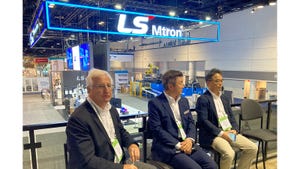BASF charged up on fuel cells' future
December 20, 2006
BASF Future Business GmbH (Ludwigshafen, Germany), an investment business founded by plastics BASF (also Ludwigshafen) to identify potential future areas of growth, has agreed to acquire Frankfurt-based PEMEAS GmbH, a supplier of fuel-cell components, from a group of seven investors. No financial details were disclosed.
The acquisition will be completed by the end of January. BASF has identified energy management as one of five growth clusters in which the supplier is developing new technologies and materials for energy storage and energy conversion, as well as for alternative energy capture.
PEMEAS was founded in April 2004 as a spin-off of the former Hoechst Group’s fuel-cell activities. The company has approximately 50 employees and operates manufacturing and R&D facilities in Germany and the U.S. PEMEAS is currently working with clients on projects to use fuel cells in areas such as portable electronics, residential applications, or backup power systems.
According to a fuel-cell components expert at a German plastics processor, who requested anonymity, the move is a synergistic one by BASF following its acquisition earlier this year of Engelhard, as that firm is a leading supplier of the precious metal-based catalyzers needed for coating of polymer electrolyte membrane (PEM) fuel cells—also called Proton Exchange Membrane fuel cells. These use hydrogen fuel and oxygen to produce electricity.
PEMEAS’ Celtec division focuses on the development and commercialization of membrane electrode assemblies (MEAs) for high-temperature polymer electrolyte membrane (PEM) fuel cells, said to be more reliable and cost efficient than conventional low-temperature fuel cells. Its E-TEK division develops and manufactures catalysts, gas-diffusion layers, and electrodes for low- and high-temperature PEM fuel cells as well as for direct methanol fuel cells (DMFC).—[email protected]
You May Also Like


